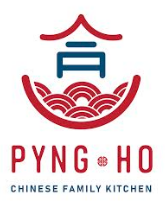This type of cuisine, called jungguk yori(中华料理), originated back in the early 19th century. With the influx of Chinese immigrants to the region, jungguk yori cuisine saw a resurgence in popularity in the 1950s and early 1960s. Pyng Ho flourished during this time. What began as a small kitchen that predominantly served traditional Chinese dishes quickly grew to a massive facility the size of a small city block with that stood 3 stories tall and was capable of serving 1200 people at once. Pyng Ho quickly became a social center of the community and hosted numerous events such as weddings, corporate events, and major holiday celebrations, sometimes hosting them all at the same time. Even during the 1960s, when political reform in South Korea significantly impacted the rights of Chinese business owners, local politicians and Korean business owners continued to support Pyng Ho. It had become a local icon that everyone in the community knew about.
One of Jou Ming Chang’s grandsons, Jou Chyi Yi , grew up in Incheon in the 1960s and 1970s. He was regularly in and out of the restaurant, contributing in whatever way he could. Jou Ming Chang began to teach Chyi Yi how to cook at the age of 12 as a way to keep him from causing mischief in the restaurant. Chyi Yi demonstrated a passion for cooking at a young age, and learned how to not only cook jungguk yori dishes that had become so popular at the restaurant, but he also learned about traditional Chinese recipes that his grandparents grew up with.
Unfortunately, in spite of the support of the local populace, the South Korean government continued to enact laws that made it more and more difficult for Chinese immigrants to own and operate businesses in South Korea. While the Jou family loved their restaurant, the doors eventually closed. Chyi Yi’s father, Jou Dah Yeou, decided that it would be best for his family to leave Korea altogether. Jou Dah Yeou, who had been an attache for the Chinese military until 1967, had helped to manage Pyng Ho for over a decade. In early 1977, Jou Dah Yeou moved his family to Costa Rica with the intentions of settling down for an early retirement. Chyi Yi and his siblings went to high school in Costa Rica and learned Spanish while living there. After graduating from high school, Jou Chyi Yi decided it was time to leave Costa Rica and wanted to continue his education in the United States. In 1978, while his family stayed in Costa Rica, Jou Chyi Yi moved to California.
After the initial culture shock wore off, Chyi Yi quickly adapted to American life. He went to school and quickly picked up enough English to get by in daily life. In an attempt to become more like an American (and to help people who couldn’t pronounce it), Chyi Yi adopted an American name: Steve. Steve enjoyed his time in California, but like many young people, he struggled to figure out exactly what he wanted to do in life. He enjoyed cooking immensely, but he was unsure about how to channel that passion into something more. And then, in 1979, an opportunity presented itself.
While many Jou family members went their own ways when Pyng Ho closed in Incheon, some eventually ended up moving together to Atlanta, Georgia, with the idea of reopening a new Pyng Ho restaurant. Steve was encouraged to come join them in the venture. In 1979, several of the same members of the Jou family who had worked at Pyng Ho in South Korea opened up the second iteration of Pyng Ho here in Decatur, Georgia. Steve was reunited not only with his mother and father who had recently left Costa Rica to move to Atlanta, but also with his grandfather, Jou Ming Chang. Jou Ming Chang again took Steve under his wing for the next several years. He didn’t just teach Steve how to cook. He taught Steve about how to weave life’s philosophies and wisdom into the food he made. He taught him that cooking, like life, is about finding balance and that the best culinary experiences come when a chef truly knows the people that he is cooking for. Jou Ming Chang continued to teach Steve all he knew about traditional Chinese dishes that he loved as a child while simultaneously encouraging him to not be afraid to explore new cooking methods.
Today, over 40 years after reopening here in the United States, Pyng Ho is still owned and operated by the Jou family, and it still makes many of the same traditional Chinese and jungguk yori dishes that made it so popular in South Korea 60 years ago. Steve Jou has been the head chef for the better part of 3 decades, and many members of his family continue to work in the restaurant to this day. Four generations of the Jou family helped to make Pyng Ho what was and what it still is today.

